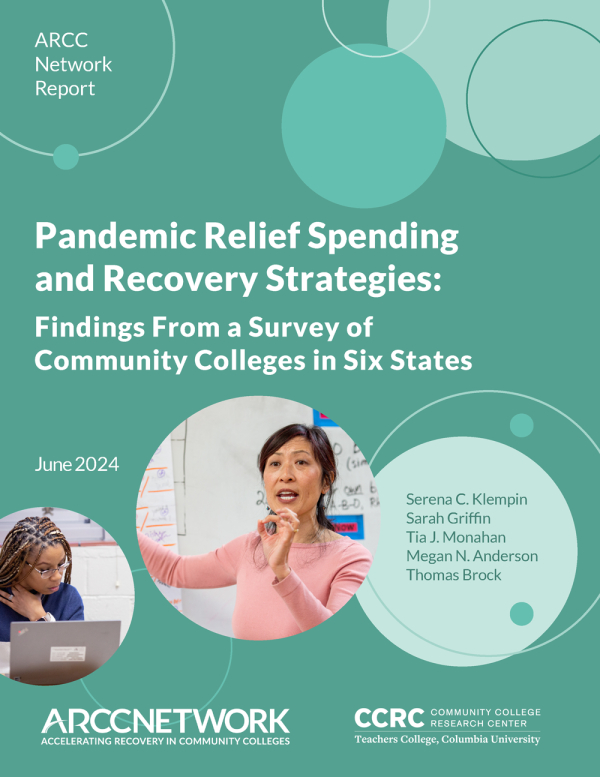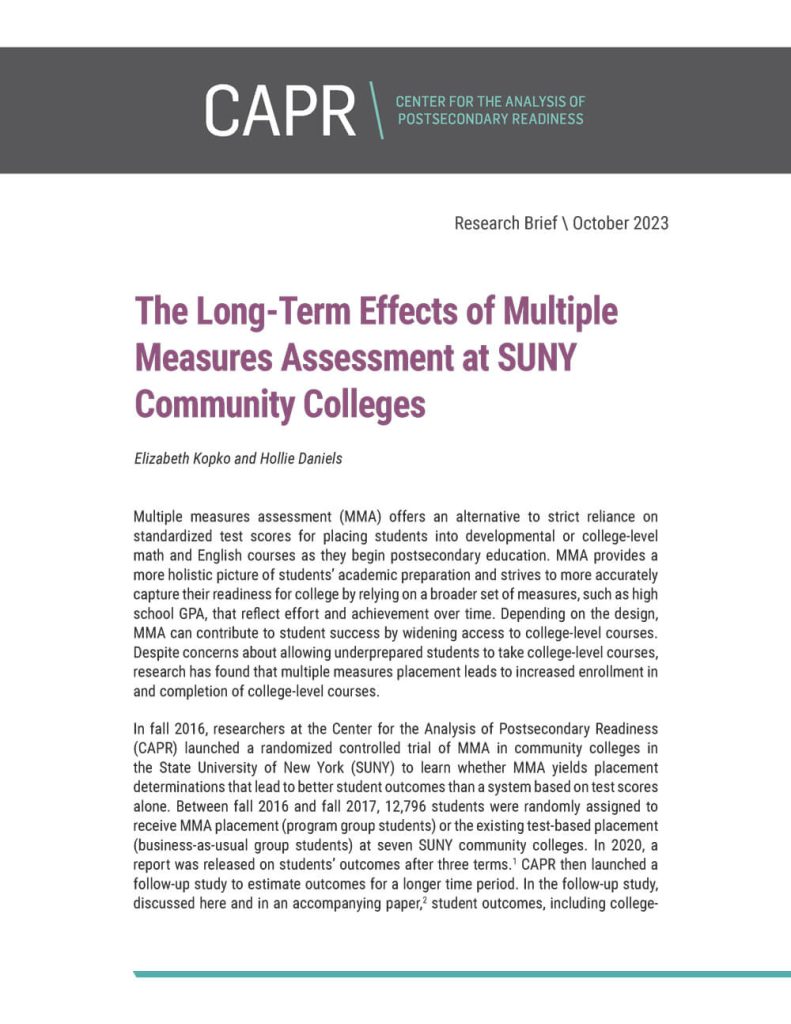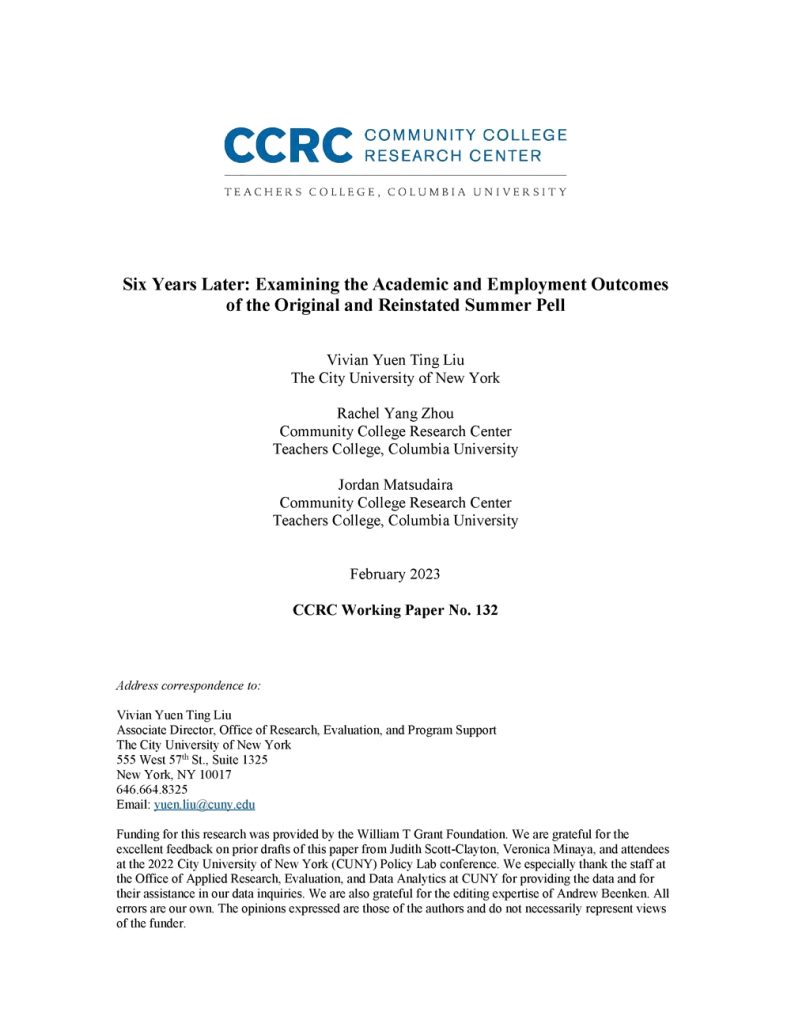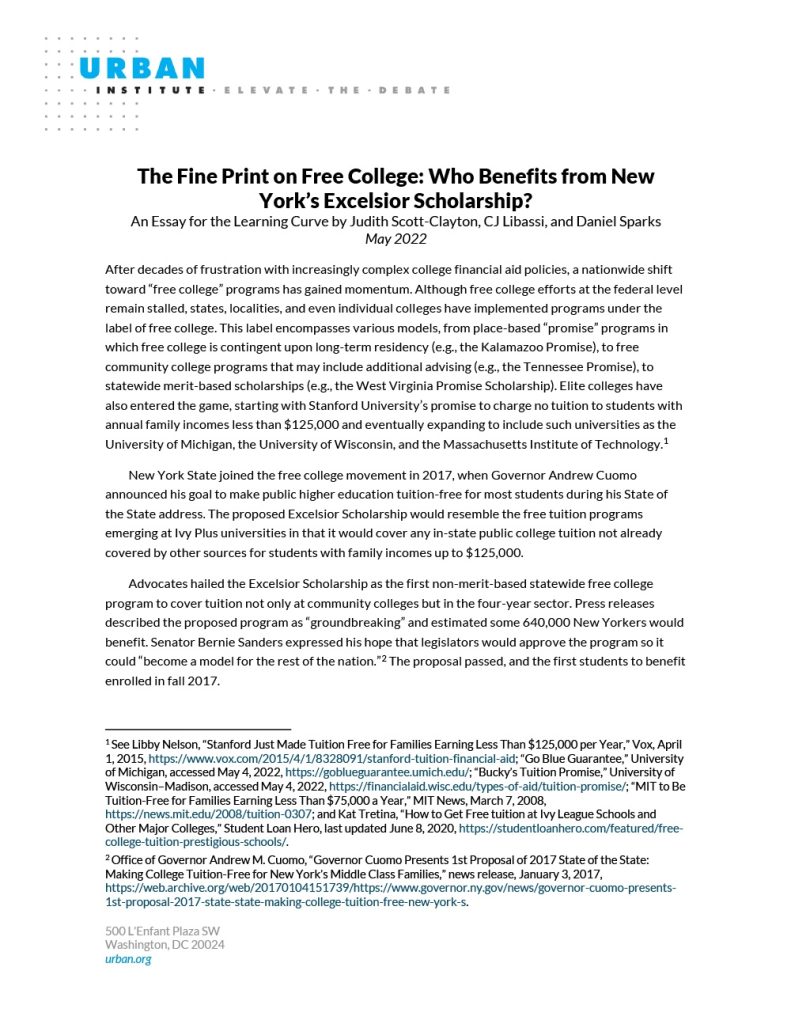Lessons on Scaling Corequisites: The City University of New York’s Transition From Prerequisite to Corequisite Academic Support

This CAPR report draws on interview data with faculty and staff to examine how seven City University of New York colleges transitioned to fully scaled corequisite courses in English and math and the implications of their choices for early implementation.
Pandemic Relief Spending and Recovery Strategies: Findings From a Survey of Community Colleges in Six States

This book chapter explores the personal support networks and help-seeking preferences of immigrant-origin, first-generation-in-college students (FGCS) as part of a three-year longitudinal mixed-methods study with FGCSs at four public Hispanic-serving institutions in California.
The Long-Term Effects of Multiple Measures Assessment at SUNY Community Colleges

This CAPR brief describes findings and implications of an evaluation study of multiple measures assessment (MMA); it focuses on results among students whose placements changed (or would have changed) under MMA.
Six Years Later: Examining the Academic and Employment Outcomes of the Original and Reinstated Summer Pell

Using administrative data from the City University of New York (CUNY), this paper examines the impact of the summer Pell program on community college student persistence, completion, and employment outcomes.
The Fine Print on Free College: Who Benefits From New York’s Excelsior Scholarship?

Using data on students enrolled in two- and four-year colleges of the City University of New York, this essay assesses the distribution of benefits of the scholarship program in terms of who qualifies for, receives, and renews awards.
